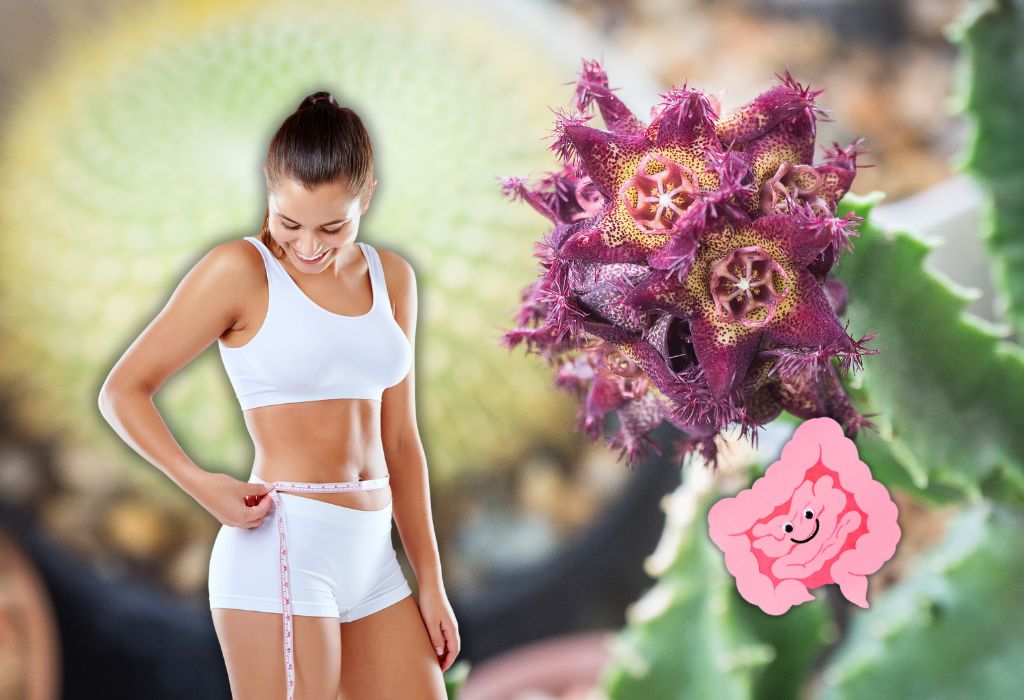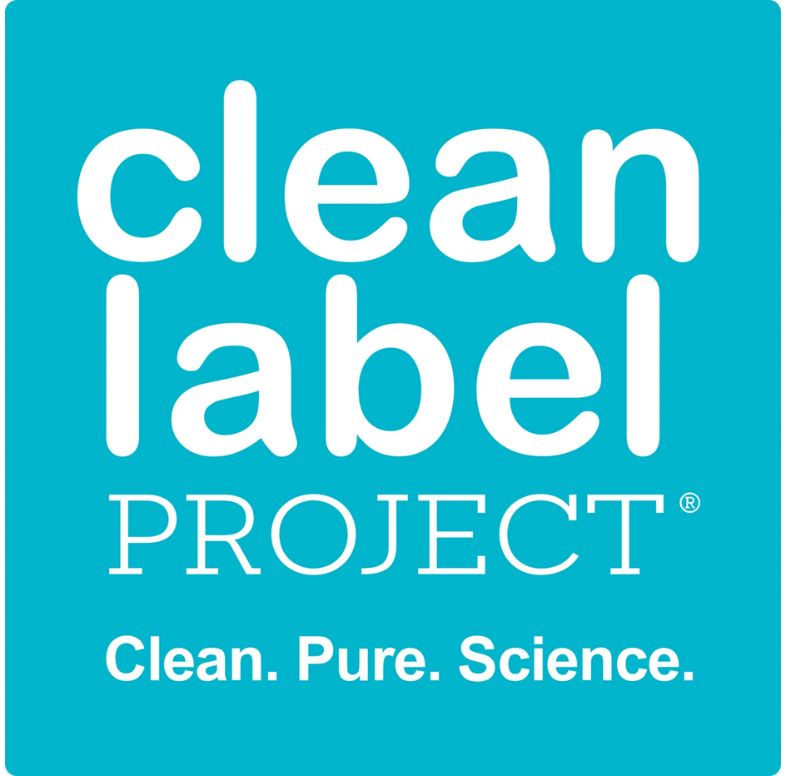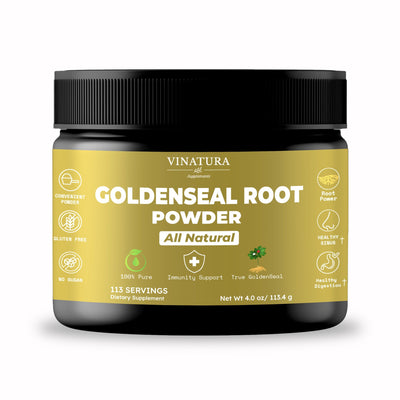
Exploring 8 Caralluma Fimbriata Benefits
For centuries, Caralluma Fimbriata has been used as a natural remedy to support health. With numerous bioactive components, this plant extract not only helps reduce feelings of hunger but also offers many other Caralluma Fimbriata benefits for the body.
Let’s explore the 8 standout benefits of Caralluma Fimbriata and why it has become a popular choice in health supplements.
Before exploring further, please read the disclaimer located at the end of this webpage.
Key Takeaways
- Caralluma Fimbriata is an edible cactus that indigenous Indians have used to curb hunger and enhance endurance.
- The 8 benefits of Caralluma Fimbriata include:
- Appetite reduction.
- May fight obesity.
- Possible endurance enhancement.
- Thirst reduction.
- Improved brain function.
- Better digestion.
- Enhanced kidney function.
- Lowered blood sugar levels.
- A dose of 500 mg twice a day for up to 12 weeks is considered safe.
- Mild side effects may include digestive disturbances, stomach pain, bloating, and constipation.
What Is Caralluma Fimbriata?
Caralluma Fimbriata is an edible cactus that indigenous Indians commonly use to curb hunger and enhance endurance, and it has been studied for its weight loss support capabilities.
In a 60-day trial, the group consuming Caralluma extract daily showed a significant reduction in waist circumference and feelings of hunger compared to the placebo group. While there were signs of weight loss and reduced body fat, the differences were not very pronounced between the two groups [1].
Overall, Caralluma may be a natural option to help control hunger and reduce waist size in the short term.
8 Caralluma Fimbriata Benefits

Suppresses Appetite
As mentioned above, Caralluma Fimbriata has long been used by indigenous Indians to curb hunger and maintain endurance. In a 60-day trial with overweight participants, those using Caralluma extract daily experienced a significant reduction in appetite compared to the placebo group.
This indicates that Caralluma not only helps you feel fuller for longer but also serves as a natural way to control hunger, making your weight loss journey more comfortable [2]. In a study on mice, Caralluma extract significantly limited food intake based on dosage and reduced weight gain, liver weight, and fat mass.
Furthermore, Caralluma Fimbriata also reduced the increase of leptin—a hormone related to hunger—demonstrating a notable effect in curbing appetite [3].
May Fight Obesity
Caralluma Fimbriata extract has been recognized as safe (GRAS) and is becoming increasingly popular as a natural dietary supplement to reduce appetite and aid in weight management, which is highly beneficial in combating obesity.
Caralluma contains special compounds such as pregnane glycosides, flavonoids, and β-sitosterol, believed to contribute to weight loss and appetite suppression. With the ability to inhibit appetite through pregnane glycosides, this extract shows great potential in the weight loss field [4].
Several studies also indicate that Caralluma Fimbriata has potential anti-obesity effects, which may reduce waist circumference and waist-to-hip ratio among participants compared to the placebo group. Although it may not significantly decrease body weight or body mass index (BMI), the appetite-suppressing capability of Caralluma Fimbriata is undeniable [5].

May Enhance Endurance
Research has examined the impact of Caralluma Fimbriata extract on carbohydrate metabolism enzymes and glycogen levels in diabetic mice fed a high-fat diet. The mice were given Caralluma Fimbriata at a dose of 200 mg/kg/day for 90 days.
The results showed that Caralluma Fimbriata helped restore glycogen levels in the liver and muscles, improved enzyme activity, and reduced muscle damage. This suggests that Caralluma Fimbriata has the potential to enhance endurance and support carbohydrate metabolism, even in a calorie-rich diet [6].
Overall, Caralluma Fimbriata shows promise in improving endurance and supporting overall health. It not only helps reduce feelings of hunger but also contains numerous bioactive components beneficial for energy metabolism and reducing fatigue during exercise.
The active compounds in Caralluma Fimbriata can lower blood lipid levels, protect the liver, and provide antioxidant effects. Additionally, its ability to improve insulin resistance may help enhance exercise performance and promote quicker recovery [7].
Quenching Thirst
Caralluma Fimbriata is used as a natural method to reduce both hunger and thirst. With its cactus-like structure, it helps provide moisture and a prolonged feeling of fullness, particularly in arid conditions.
The extract from Caralluma Fimbriata is rich in antioxidants, which help protect cells and reduce oxidative stress. Because of these properties, it is referred to as the "hunger-suppressing food of India" and is also seen as a potential solution for managing daily thirst [8].
Another study showed that due to components like glycosides, flavonoids, and steroids, Caralluma Fimbriata is renowned not only for its antioxidant properties and support in diabetes treatment but also for its ability to soothe thirst and prolong the feeling of fullness [9].
Improved Brain Function
Caralluma Fimbriata has been studied for its potential to enhance brain function in Prader-Willi Syndrome (PWS) by reducing hunger through the 5-HT2c receptor, a critical factor in regulating satiety and hunger.
In experiments with mice lacking the Snord116 gene, Caralluma Fimbriata reduced food intake, but when combined with a 5-HT2c receptor antagonist, appetite increased. These findings suggest that Caralluma Fimbriata has the potential to support the treatment of disorders related to appetite and brain function [10].
Another study found that the extract of Caralluma Fimbriata not only improved learning and memory in mice but also reduced stress without causing drowsiness.
Through object recognition and Morris water maze tests, Caralluma Fimbriata enhanced cognitive abilities, was safe at a dose of 2000 mg/kg, reduced escape time from the maze, and increased time spent in the open area, indicating stress-reducing effects. The study suggests that Caralluma Fimbriata could be a promising option for mental and cognitive health [11].

Improved Digestion
Caralluma Fimbriata leaf extract inhibits the enzymes alpha-amylase and alpha-glucosidase, two critical enzymes in the metabolism of carbohydrates into glucose. This inhibition helps slow down the absorption of glucose into the bloodstream, contributing to more effective blood sugar control.
Caralluma Fimbriata extract is not only well-known for its weight loss benefits but also demonstrates the potential to improve digestion, particularly in managing blood sugar levels [12].
Additionally, Caralluma Fimbriata stimulates glucose absorption in muscle cells, reaching up to 66.32% compared to insulin and Metformin, highlighting its ability to enhance digestion and aid the body in processing carbohydrates effectively.
This positions Caralluma Fimbriata as a promising candidate for therapies aimed at improving digestion, managing blood sugar levels, and supporting diabetes management [12].
However, there are contrasting opinions. While results from scientific studies suggest that C. Fimbriata may reduce waist and hip circumference, there have been no significant changes in weight, body mass index (BMI), or other digestive indicators. In fact, many studies have also reported mild side effects such as constipation, diarrhea, nausea, and rashes [13].
Improved Kidney Function
Caralluma Fimbriata extract has been shown to improve kidney function by protecting the kidneys from oxidative stress caused by a high-fat diet. A study on Wistar rats demonstrated that it helps maintain normal levels of urea, uric acid, and creatinine while improving the activity of antioxidant enzymes.
Therefore, Caralluma Fimbriata is considered to have the ability to protect the kidneys and minimize damage caused by an unhealthy diet [14].
The protective effects against kidney damage have also been demonstrated in other studies. This extract has antioxidant properties, supports diabetes treatment, and improves kidney function.
Research indicates that it helps reduce blood sugar levels, which is crucial for preventing kidney damage due to diabetes while also protecting the kidneys from oxidative stress [15].
Particularly in the context of a high-fat diet, hydro-ethanol extract from Caralluma Fimbriata has been shown to improve kidney function. Research on Wistar rats found that Caralluma Fimbriata helps lower plasma healthy cholesterol and triglyceride levels and improves serum transaminase and liver lipid levels.
As a result, Caralluma Fimbriata has emerged as a promising solution to protect kidney function from the negative effects of an unhealthy diet [16].

Reduced Blood Sugar Levels
The bioactive compounds in Caralluma Fimbriata suppress appetite and lower blood lipids, helping to effectively control blood sugar levels.
Research shows that it stabilizes insulin levels and has antioxidant effects, supporting overall health and diabetes treatment. Therefore, Caralluma Fimbriata is a promising option for managing diabetes and metabolic syndrome [17].
Studies indicate that Caralluma Fimbriata extract can help lower blood sugar levels and improve factors related to metabolic syndrome in overweight individuals.
In a study, the group using C. fimbriata along with a diet and exercise significantly reduced waist circumference compared to the control group [18].
Caralluma Fimbriata Risks and Side Effects
However, there have been some reports of mild side effects in certain individuals, such as digestive disturbances, stomach pain, bloating, and constipation. These symptoms usually resolve on their own after about a week of use.
Special attention should be given to the risks for pregnant and breastfeeding women. Currently, there is not enough information regarding the safety of Caralluma Fimbriata during pregnancy and lactation; therefore, it is advised to avoid its use.
Additionally, since Caralluma Fimbriata has not been extensively studied for long-term effects, you should use it with caution and consult a healthcare provider before starting. Always follow the dosage instructions on the product label and consider discussing with a doctor or pharmacist to ensure it is a suitable choice for you.
Caralluma Fimbriata Dosage
The dosage of Caralluma Fimbriata commonly used is around 500 mg, divided into two doses taken each day [19]. The dosage was confirmed in a study involving 89 participants, with a dose of 500 mg taken twice daily for 12 weeks. The participants were divided into two groups: one group received Caralluma Fimbriata, while the other group was given a placebo.
The results showed that Caralluma Fimbriata was well-tolerated and did not cause any serious side effects, which is considered a safe dosage. Therefore, it can be concluded that a 500 mg dose, taken twice a day for up to 12 weeks, is considered safe.
Conclusion
Caralluma Fimbriata is not just an herb that helps control appetite; it also offers numerous other health benefits. From supporting weight loss to protecting kidney health, this plant has many benefits for human health. If you are looking for a natural way to support your health and manage your weight, Caralluma Fimbriata may be a worthwhile option to consider.
References
- [1] Kuriyan R, Raj T, Srinivas SK, Vaz M, Rajendran R, Kurpad AV. Effect of Caralluma Fimbriata extract on appetite, food intake and anthropometry in adult Indian men and women. Appetite. 2007;48(3):338-344. doi:https://doi.org/10.1016/j.appet.2006.09.013
- [2] Kuriyan R, Raj T, Srinivas SK, Vaz M, Rajendran R, Kurpad AV. Effect of Caralluma Fimbriata extract on appetite, food intake and anthropometry in adult Indian men and women. Appetite. 2006;48(3):338-344. doi:https://doi.org/10.1016/j.appet.2006.09.013
- [3] Soundararajan Kamalakkannan, Rajendran R, Venkatesh RV, Clayton P, Akbarsha MA. Antiobesogenic and Antiatherosclerotic Properties ofCaralluma FimbriataExtract. Journal of Nutrition and Metabolism. 2010;2010:1-6. doi:https://doi.org/10.1155/2010/285301
- [4] Dutt HC, Singh S, Bharathi Avula, Khan IA, Bedi YS. Pharmacological Review of Caralluma.Bar. with Special Reference to Appetite Suppression and Anti-Obesity. Journal of Medicinal Food. 2011;15(2):108-119. doi:https://doi.org/10.1089/jmf.2010.1555
- [5] Ranil Jayawardena, Francis TV, Sachith Abhayaratna, Ranasinghe P. The use of Caralluma Fimbriata as an appetite suppressant and weight loss supplement: a systematic review and meta-analysis of clinical trials. BMC Complementary Medicine and Therapies. 2021;21(1). doi:https://doi.org/10.1186/s12906-021-03450-8
- [6] Sudhakara Gujjala, Mallaiah Putakala, Nukala S, Manjunatha Bangeppagari, Rajendran R, Saralakumari Desireddy. Modulatory effects of Caralluma Fimbriata extract against high-fat diet induced abnormalities in carbohydrate metabolism in Wistar rats. Biomedicine & Pharmacotherapy. 2017;92:1062-1072. doi:https://doi.org/10.1016/j.biopha.2017.06.016
- [7] Anwar R, Rabail R, Rakha A, et al. Delving the Role of Caralluma Fimbriata: An Edible Wild Plant to Mitigate the Biomarkers of Metabolic Syndrome. Chen Y, ed. Oxidative Medicine and Cellular Longevity. 2022;2022:1-17. doi:https://doi.org/10.1155/2022/5720372
- [8] Patil R, M. Basavanna, Shivakumara Palaiahnakote. A Comparative Study on Wet and Dry extracts of Caralluma Fimbriata for Phytochemicals and Evaluation of... ResearchGate. 2023;15(8a):1-14. Accessed November 4, 2024. https://www.researchgate.net/publication/375090418_A_Comparative_Study_on_Wet_and_Dry_extracts_of_Caralluma_fimbriata_for_Phytochemicals_and_Evaluation_of_Therapeutic_activity
- [9] Tambe DA, Chaudhari TB, Chaudhari SR. Phyto-Pharmacology of Caralluma Adscendens Roxb: A Review. Pharmacognosy Journal. 2010;2(14):33-38. doi:https://doi.org/10.1016/s0975-3575(10)80069-0
- [10] Griggs JL, Mathai ML, Puspha Sinnayah. Caralluma Fimbriata extract activity involves the 5‐HT2c receptor in PWS Snord116 deletion mouse model. Brain and Behavior. 2018;8(12). doi:https://doi.org/10.1002/brb3.1102
- [12] Shenai Ashwini, Anitha R. Antihyperglycemic activity of Caralluma Fimbriata: An In vitro approach. Pharmacognosy Magazine. 2017;13(51):499-499. doi:https://doi.org/10.4103/pm.pm_59_17
- [13] Jayawardena R, Francis TV, Abhayaratna S, Ranasinghe P. The use of Caralluma Fimbriata as an appetite suppressant and weight loss supplement: a systematic review and meta-analysis of clinical trials. BMC Complementary Medicine and Therapies. 2021;21(1). doi:https://doi.org/10.1186/s12906-021-03450-8
- [14] Sudhakara Gujjala, Mallaiah Putakala, Nukala S, Manjunatha Bangeppagari, Ramaswamy R, Saralakumari Desireddy. Renoprotective effect of Caralluma Fimbriata against high-fat diet-induced oxidative stress in Wistar rats. Journal of Food and Drug Analysis. 2016;24(3):586-593. doi:https://doi.org/10.1016/j.jfda.2016.01.013
- [15] Arif A, Sultan MT, Nazir F, Ahmad K, Rocha JM. Exploring the therapeutic potential of Caralluma Fimbriata for antioxidant and diabetes management: a 28-day rat model study. Toxicology Research. 2024;13(4). doi:https://doi.org/10.1093/toxres/tfae094
- [16] Gujjala S, Putakala M, Ramaswamy R, Desireddy S. Preventive effect of Caralluma Fimbriata vs. Metformin against high-fat diet-induced alterations in lipid metabolism in Wistar rats. Biomedicine & Pharmacotherapy. 2016;84:215-223. doi:https://doi.org/10.1016/j.biopha.2016.09.029
- [17] Anwar R, Roshina Rabail, Allah Rakha, et al. Delving the Role of Caralluma Fimbriata: An Edible Wild Plant to Mitigate the Biomarkers of Metabolic Syndrome. Oxidative Medicine and Cellular Longevity. 2022;2022:1-17. doi:https://doi.org/10.1155/2022/5720372
- [18] Astell KJ, Mathai ML, McAinch AJ, Stathis CG, Su XQ. A pilot study investigating the effect of Caralluma Fimbriata extract on the risk factors of metabolic syndrome in overweight and obese subjects: a randomised controlled clinical trial. Complementary Therapies in Medicine. 2013;21(3):180-189. doi:https://doi.org/10.1016/j.ctim.2013.01.004
- [19] Vijay Khajuria, Arora E, Tandon V, et al. To evaluate efficacy and safety of Caralluma Fimbriata in overweight and obese patients: A randomized, single blinded, placebo control trial. Perspectives in Clinical Research. 2015;6(1):39-39. doi:https://doi.org/10.4103/2229-3485.148812
Author

Product Disclaimer
Including an ingredient or study does not evaluate, endorse, or recommend any Vinatura product or any third-party product. Some ingredients discussed may not be used in any Vinatura product.
The content of the articles has not been evaluated by the Food and Drug Administration (FDA) and is not intended to promote or endorse any specific product. Any products sold on this website are not intended to diagnose, treat, cure, or prevent any disease.
Opinions and Endorsements
Any claims, statements, or opinions expressed in the articles are those of the author(s) and do not necessarily reflect the views or opinions of the manufacturers of the dietary supplement products. The products sold on this website are separate from the content of the articles and are not directly endorsed or associated with the information presented here.
Liability Disclaimer
The author(s) of the articles, website, and manufacturers of the dietary supplement products do not assume any liability for any potential consequences arising from the use of the information provided in the articles. Ingredient effects, dosages, and safety vary by individual, formulation, and context; some ingredients interact with medications or may be unsuitable during pregnancy or lactation. It is recommended that individuals consult with a qualified healthcare professional before making any dietary or lifestyle changes, including the use of dietary supplements.
Product Usage
Please refer to the product labels and packaging for specific usage instructions and guidelines for the dietary supplement products sold on this website.
Customer Support
For any concerns or questions regarding the dietary supplement products, please contact our customer support team, who will be more than happy to assist you.






Leave a Comment
Be the first to comment.
What do you think?